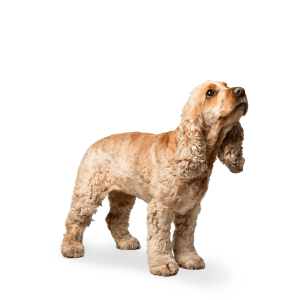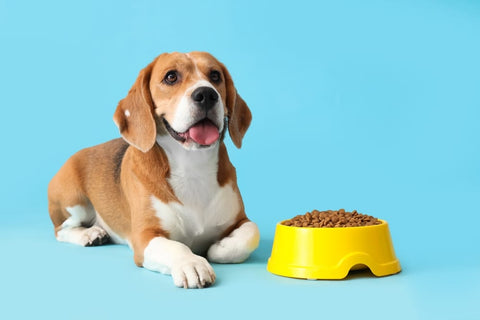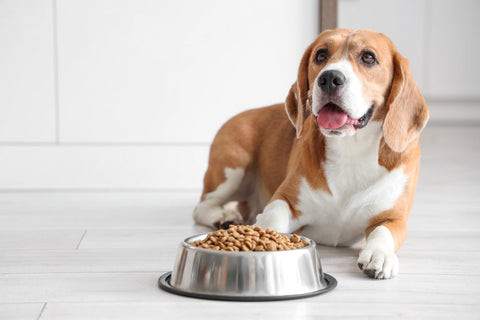

8 signs your dog could benefit from probiotics
All over your pup’s skin and throughout their digestive tract lives a rich community of bacteria and yeast called the microbiome. These tiny microbes play vital roles in keeping your dog healthy, from supporting digestion to immune function. Infections, antibiotics, allergies, illness or just feeling under the weather can all upset this delicate balance, and sometimes your pup’s microscopic friends need a little extra help.
The benefits of probiotics
Probiotics are supplements that contain live beneficial bacteria to support your dog’s microbiome. While probiotic shampoos exist, most puppy products focus on promoting a healthy balance of gut bacteria, like supplements for digestive concerns. By supporting a balanced microbiome, probiotics can contribute to a healthier gut, which in turn helps with digestion, immune responses, and overall wellbeing.
Probiotics come in various forms – tablets, pastes, powders and treats – making it easy to find an option your dog enjoys. But it’s not just getting your pup to take them that influences how effective they are. This also depends on the specific bacterial strains and their doses (often measured in colony-forming units, or CFUs), as well as the presence of prebiotics, fibres that feed beneficial bacteria and help them flourish.
Are probiotics good for dogs?
Probiotics can be a helpful addition to your pup’s health care routine. They’re typically used in one of two ways: as a routine supplement for dogs who face recurrent health challenges, or as an at-home treatment for mild diarrhoea. While they are often included as part of a broader treatment plan, restoring gut balance takes time. Without addressing health issues that can make the gut a more hostile environment, even with prebiotics, these beneficial bacteria can struggle to survive, let alone thrive.
Remember, if your pup has a weakened immune system, food allergies or a very sensitive stomach, it’s wise to get professional advice – and check the ingredient list – before starting probiotics.
Are probiotics good for dogs with sensitive stomachs?
If your dog has a sensitive stomach, understanding what might be causing their digestive issues is an important first step. Sometimes your pup is just a bin raider, or they may have food intolerances, allergies or underlying health conditions that haven’t been diagnosed.
The combination of probiotics, prebiotics and fibre in some products can certainly help reduce the frequency and severity of your pup’s signs, but they won’t cure underlying health problems. By combining gut support with dietary management and professional advice, you can help your dog feel their best.
Read our health guide to find out what to give a dog with an upset stomach.
Are probiotics good for dogs with diarrhoea?
There are some excellent probiotic products that can help stop uncomplicated diarrhoea in its tracks. For fit, healthy dogs, watchful owners can use a probiotic paste at the first signs of sloppy poop, which often leads to a quick recovery at home.
In these cases, fibre and other supportive components in products with fast-acting ingredients can absorb excess water and help calm the gut, while the probiotic element supports friendly bacteria as they recover and rebalance after the upset. Read our guide to the benefits of fibre for dogs.
However, profuse watery or bloody diarrhoea should be checked by a vet. Find out more in the health guide all about diarrhoea in dogs.

8 signs your dog needs probiotics
Your dog relies on its microbiome to stay healthy, and some signs can suggest problems with this delicate balance. Here are some of the most common signs that your pup’s gut health could benefit from extra support. Remember, probiotics and veterinary care aren’t an either-or choice. Often, the fastest path to recovery combines professional advice, a high-quality diet and careful supplementation.
1. Soft or runny poop
If your pup’s tummy is upset, their poop can vary from a soft mound to water – check out our dog poo chart. As mentioned above, formulas with fast-acting ingredients can help firm things up quickly, provided your pup is otherwise fit and well.
2. Constipation
Straining or difficulty passing poo can have many causes, from dehydration to low dietary fibre or more serious internal problems. Any change in bowel function can disrupt the microbiome. After getting the all-clear from your vet, products containing probiotics and fibre can help keep things moving regularly. Read our guide to constipation in dogs.
3. Vomiting
Frequent or severe vomiting always needs a vet check. Probiotics aren’t a good idea while your dog is actively vomiting, but they can be part of recovery once the stomach has settled – especially as a short break from food is often needed, reducing the nutrients reaching the gut bacteria.
4. Gas or flatulence
The odd bout of wind is normal, but persistent flatulence may signal fermentation in the gut from bacterial imbalance or poor digestion. Probiotics, combined with a highly digestible diet, can help restore balance and reduce odours.
5. Bad breath
An imbalanced gut can sometimes contribute to bad breath, but dental disease, anal gland concerns, nausea or other medical issues are more common culprits. Have your vet identify the cause first. If digestion is involved, probiotics may help freshen things up from the inside out.
6. Weight issues
Unexpected weight loss or trouble maintaining a healthy weight happens for many reasons, but one thing is often true – your pup’s gut and microbiome probably aren’t in tip-top shape. Armed with a diagnosis, probiotics can help restore balance to the gut.
7. Skin issues
A healthy coat and skin depend on good nutrition, and an imbalanced gut or skin microbiome can be either a cause or a consequence of irritation. Probiotics can be one element in a broader plan to support skin and coat health.
8. Bad odour
Whether it’s from the skin, breath or bum, unpleasant smells can signal imbalance – but not always the bacterial kind. Since causes range from blocked anal glands to digestive issues or kidney problems, a veterinary check is the safest first step. Then, if gut is part of the problem, probiotics can help make life more fragrant.
The takeaway
Probiotics can be a helpful part of supporting your dog’s gut health and overall wellbeing, but they’re not a quick fix or a replacement for veterinary care. Restoring balance in the gut takes time, and underlying health issues need professional attention to create an environment where beneficial bacteria can truly thrive. By combining thoughtful probiotic use with good nutrition, careful observation and veterinary guidance, you can give your pup the best chance at a happy, healthy digestive system – and a wagging tail.



